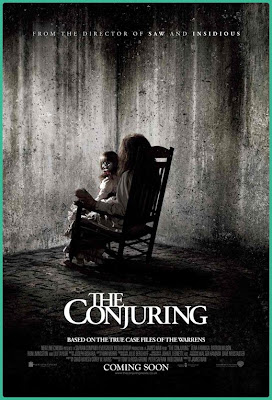The Dick Knight
A frustrating experience
(And hey! That’s the point!)
Adam McKay is perhaps one of the most clever filmmakers working today. He wields a sharp pen to write dialogue that cuts like an Aaron Sorkin script, but with direction like a glory-days Oliver Stone; his political bite harsh, his commentary unsubtle, his ruthlessness unapologetic, not to mention wickedly hilarious. With these elements snowballed by a brilliant cast that can hold the weight of a once-again fat Christian Bale, McKay has unleashed his meanest political piece and his darkest comedy, even if his ambitions have flown him a little too close to the sun.
First things first, Christian Bale’s doctor must be so pissed. At this point the man deserves some kind of award for constantly putting his cholesterol at risk.
Less importantly, but still important, Bale chews on the scenery as Dick (all puns intended) like he were reprising the Dark Knight: not just in the most ruthless sense, but also as the most secretive politician this generation and the last has ever seen. Okay, so Batman's not a politician but he helps give the people what they think they need, while shrouding himself in secrecy. He also grunts in that deep, menacing Batman voice so perhaps the two are one in the same. Except one knight is a lot darker than the other.
Also, the cast is fabulous; Sam Rockwell is a frighteningly on-the-nose G.W. Bush and he's hilarious, but Steve Carell is the show-stealer as Donald "Rummy" Rumsfeld, representing the perfect amount of comedic shade and mustache-twirling dickery that went on during this era of the U.S. government (LOTTA Dicks FYI).
To a degree Vice is not just a brilliant political comedy but one of the most significant political films of the century. It’s topically frustrating but that’s the entire purpose of the film’s existence. McKay unearths every document, artifact and secret about Dick Cheney and the era of the U.S. government during the time he was in or near office, and uses Cheney's ugly but fascinating history to teach Americans a lesson.
I'm not saying McKay is teaching Americans a lesson in the parental sense of wagging a finger at the monsters of the right wing (though he is doing exactly that), more than actually using historical, factual evidence to LITERALLY educate his audience.
Just as he did with The Big Short, McKay presents a visual pop-culture scrapbook to break down history in a way his audience can comprehend. It's not that McKay is being condescending, rather than constructive in his use of clever storytelling.
Through means of absurdist comedy, McKay bulldozes through a very thick, wordy timeline using interrupting narration that simplifies the important topics while breezing through "the boring stuff," so moviegoers can absorb all the politics without feeling like they're falling asleep during a history class, while also occasionally laughing out loud at the expenses of America's f**k-ups.
It's like The Daily Show but a LOT more bleak.
As for those expenses of the U.S. nation, McKay is simply reeling out the facts. His hilarious mid-credits sequence shows that in a sensitive time of a Trump presidency, this all may FEEL like bothersome liberal propaganda, but the film is earnestly just a funny point of view of things that REALLY happened; things that have made history in what is perhaps one of the darkest timelines of this country.
There's no need to elaborate on the shady upbringings of the terrible decisions that were made behind closed doors of the Oval Office during the Bush era (because then we'd be discussing politics and not a film), but there is a need for America's truths to come out, and McKay is speaking his truths like Cheney would; not loud and boisterous through a megaphone, but rather quiet, sinister, and directly in your face, even if you can't hear what he's saying.
That said, like Michael Haneke with Funny Games, McKay is perhaps TOO clever for his own good as his self aware commentary often swallows the film's importance. He dresses up much of Cheney's personal history with meta moments like mid-credits sequences that satirize Hollywood endings, and Shakespearean monologues to fill the void gaps of political unknowings with slapstick comedy, which shouldn't be of surprise (this is the dude who birthed Anchorman, after all).
McKay breaks the fourth wall on MULTIPLE occasions to remind his audience that although this is his version of the truth, there are still many facts he doesn't know about what went on in the White House during the late 90s/early 2000s, but as his opening states he tried his f**king best. And his f**king best, while not The Big Short, is one of the most educational, if not one of the best political satires of the film industry.
If anything, Vice will only open doors for whatever filmmaker is bold enough to one day tackle a Trump bio-pic, and when that day comes, God help us all, it better be someone half as sharp as McKay.
*5 points to Rockwell
*5 points to Carell
*10 points to Bale
*25 points to McKay



